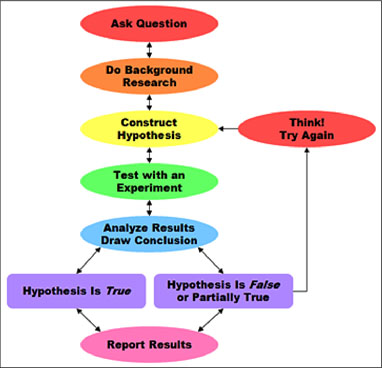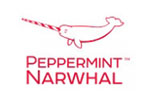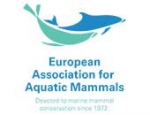
Home / Research & Conservation / Research Grant /
Designing A Research Project
 The scientific method is a process for experimentation that is used to explore observations, answer questions, and search for cause and effect relationships in a research project. There are typically six steps involved in the scientific method. These include asking a specific question, conducting background research on the topic (lit review), constructing hypotheses, testing the hypothesis through experimentation, analyzing and drawing conclusions about the data, and communicating the results.
The scientific method is a process for experimentation that is used to explore observations, answer questions, and search for cause and effect relationships in a research project. There are typically six steps involved in the scientific method. These include asking a specific question, conducting background research on the topic (lit review), constructing hypotheses, testing the hypothesis through experimentation, analyzing and drawing conclusions about the data, and communicating the results.
The Question
The scientific method starts when you ask a question about something that you can observe: How, What, When, Who, Which, Why, or Where? In order for the scientific method to answer the question it must be about something that is measurable, preferably quantitatively.
Background Research
Conduct an extensive literary review of the information known about the topic and question you have identified (that both supports and contrasts your hypothesis). This provides you a plethora of information to help you make your hypothesis and identify methodologies and assumptions that have both succeeded and failed in the past.
Construct a Hypothesis(es)
Make an educated guess about the results of your research. Your hypothesis must be measurable and constructed in such a way that will help you answer your original question.
Experimentation
Your experiment tests whether your hypothesis is true or false. It is important that experimental methodology is well controlled.
Analyze Your Data and Draw a Conclusion
Data should be organized in the most efficient manner and analyzed in as many ways as possible, preferably with statistical analyses although this is difficult when small sample sizes are used. Make informed conclusions about the data analyses and determine if your hypothesis is true or false. Oftentimes, if the hypothesis was false, a new hypothesis may be made and the entire process of the scientific method may be initiated again. Never change your hypothesis to match the results.
Communicate the Results
One of the main goals of completing a research project is to disseminate the results, hopefully to a scientific peer-reviewed journal or by presenting the results on a poster at a scientific meeting. Guidelines of how to write a research paper can be found here.
Figure courtesy of: http://www.sciencebuddies.org
















